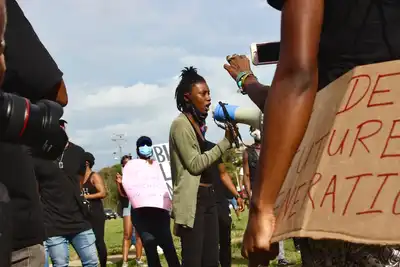Xenophobia in South Africa: What to Know as a Tourist

Image Source: Unsplash
Xenophobia, or fear of otherness, is not a new phenomenon. From the witch hunts to modern-day hostility towards Syrian refugees and immigrants, xenophobia has been with us for at least 500 years. However, South Africa has its peculiar history when it comes to xenophobia. Because of Apartheid, segregation and discrimination were normalised in South Africa. Black people were forced into separate townships, kept out of certain areas by means of pass laws and generally looked down upon as second class citizens. After the dismantling of Apartheid in 1990 and the end of White rule in 1994, many black South Africans experienced a feeling of social freedom they had been denied for so long. However, this newly found liberty has also brought with it new fears and anxieties that stem from centuries of mistreatment by whites. Read on to discover more about xenophobia in South Africa including details about attacks on Nigerians and Indians as well as the recent attack on foreign nationals in Durban
Xenophobia and African Culture
Just as the West has its fears of the East and Russia its fears of the West, so Africa has its own fears of the West. In Ghana and Nigeria, the word “red” is feared and mistrusted because of its association with blood, death and misfortune. In Uganda, the colour black is associated with evil and witchcraft, while the colour white is associated with purity, goodness and cleanliness. In terms of South African culture, the term “xenophobia” does not exist; it is used to describe a Western or European phenomenon. It is thought to be derived from the Greek “xenos”, meaning “stranger”.
Attacks on Nigerians and Indians
In March 2016, a mob of South African students attacked a group of Indian students in Durban. They had mistaken them for Nigerians and attacked them for bringing drugs and committing crime in South Africa. The attack was believed to be xenophobic in nature. Nigerian immigrants have long been subjected to xenophobic hostility in South Africa. In 2001, violence against Nigerians resulted in the death of 19 people and the displacement of thousands more. Attacks against Nigerians have included stoning and petrol bombing of their houses, smashing of their windows and burning of their vehicles. The hostility against Nigerians has been blamed on various issues including the view that they are all drug traffickers and fraudsters as well as a lack of South African social services that can accommodate Nigerians.
Recent attacks in Durban
On March 31, 2018, a crowd of South Africans attacked foreign nationals in Durban. The clashes occurred at a local taxi rank and resulted in the deaths of two people. They were allegedly killed by the South African group, though the police have said it is too early to tell. The clashes were reported to have been between Zimbabwean and South African taxi drivers. The violence then spread to their workplaces, with Zimbabweans being attacked in their taxis and on the streets as well as having their vehicles and equipment destroyed. When the violence first broke out, it was believed to be xenophobic in nature. The attacks were later found to be more ethnically motivated and were being committed by people from all sides of the political spectrum, including both the ruling African National Congress (ANC) and the main opposition party, the Economic Freedom Fighters (EFF).
Conclusion
There has been no recent upsurge in xenophobic violence in South Africa, with the attacks in Durban marking the first signs of such hostility in years. However, in the wake of the attacks, there has been a noticeable increase in the use of racial slurs on social media and an increase in racially charged comments against foreigners. To combat xenophobia in South Africa, it is essential that the government implements better border controls, particularly with regard to neighbouring Zimbabwe, as well as a more aggressive crackdown on crime. In addition, it is vital that the government promote a more inclusive society in which every person is valued and treated with respect, no matter their background, religion or ethnicity
Share This




